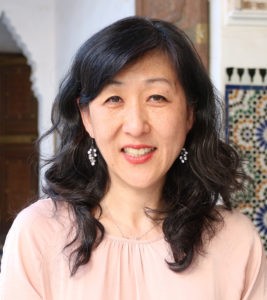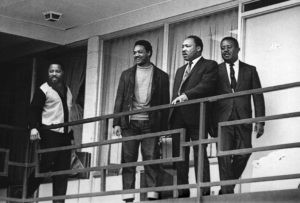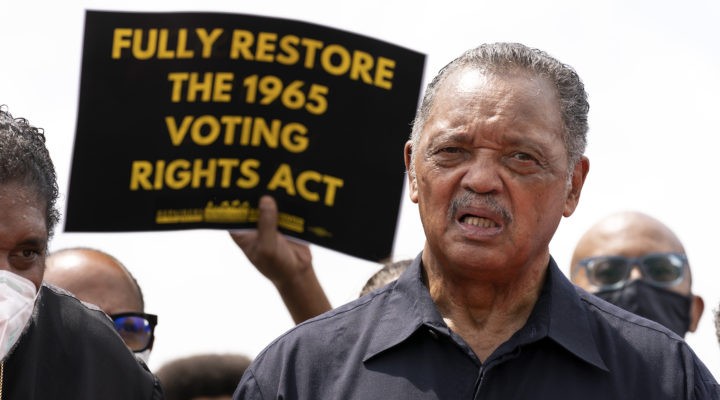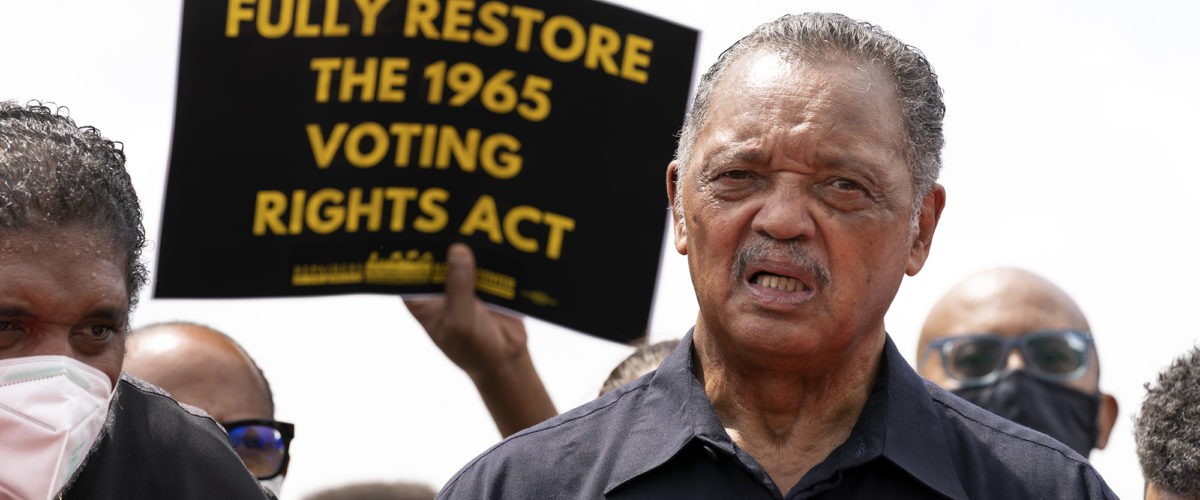For two years, we have been living through the age of COVID-19 which, as we all know, has spread through numerous and ongoing waves across the world. Vaccinations have made a difference. But from time to time, COVID-19 infects individuals who are vaccinated.
Such a breakthrough infection affected Jesse Jackson, placing him and his wife, Jacqueline Jackson, in the hospital. During their hospitalization, friends, family and the greater community prayed together, collectively holding prayers on social media, congregating spiritually while being apart.

Grace Ji-Sun Kim
Having beaten COVID-19, Jesse Jackson turns 80 on Oct. 8, and his birthday presents an opportunity to reflect on his life. Thankfully, this is a celebration of life and not a memorial.
We give thanks for his past and ongoing witness and work, leadership and activism that has initiated and preserved movements for justice not only in the United States, but around the world. Jackson’s international impact was recognized this summer by the president of France, Emmanuel Macron, who bestowed on him the Legion of Honour at the Élysée Palace in Paris on July 19. One of France’s highest honors, the Legion of Honour was given to Jackson for his lifetime of service toward emancipation and justice. He traveled with his family to receive the honor.
Neither living with Parkinson’s nor surviving COVID-19 has slowed down Jackson. He remains committed to the work to which he has devoted more than 60 years of his life. He continues to write, speak at events, hold conferences and make an impact on matters of social justice domestically and internationally. He has held a few book signings for Keeping Hope Alive since the onset of the pandemic. He plans to continue preaching, speaking and inspiring people with his message of economic justice, social justice and equity.
Jackson’s activism began at the age of 18 as he lived under segregation. He and six other teens tried to use the public library in Greenville, S.C. This led to his arrest on charges of disorderly conduct. He understood that his arrest came from an act of civil disobedience to a law that enforced his marginality. This fueled his commitment to participate in the movement for liberation and the equal rights of all people. Many more arrests followed as he served in that movement.
“He entered Chicago Theological Seminary in September 1964 because he wanted to learn how to change society.”
He entered Chicago Theological Seminary in September 1964 because he wanted to learn how to change society. He understood the need for Blacks to reject the identity imposed onto them by the dominant culture, an identity that resulted in the exploitation and the violation of Black bodies, exploitation and violation that continue to this day. He wanted to encourage Blacks to claim their own providence and affirm their own identity, knowing this could bring retribution and suffering as a consequence. He knew that changes can happen from within Black churches to make the lives of Black people safer and enhance justice and equity for all.
Jackson’s first encounter with Martin Luther King Jr. occurred in the Atlanta airport in December 1964 when he was 23 years old. Jackson was on his way to deliver a speech for a district meeting of the Omega Psi Phi fraternity at Morehouse College. King was on his way to Oslo, Norway, to receive the Nobel Peace Prize. This chance encounter was important to Jackson as King recognized him at the airport from his work in Greenville. The encounter sparked Jackson’s interest in working with King.
In March 1965, leaders of the Civil Rights Movement determined to hold a march from Selma to Montgomery, Ala., in support of the right of Blacks to vote, a right that was suppressed at the time. At the Edmund Pettus Bridge, state troopers and others attacked the people in the first march that took place on March 7, a day remembered as Bloody Sunday. On March 9, King led a second march. When confronted by state troopers at the bridge, King led the marchers in prayer and asked them to turn back to avoid violence. The third march began on March 21. Protected by members of the Alabama National Guard, FBI agents and federal marshals, the marchers arrived at the state Capitol on March 25.

On April 3, 1968, Martin Luther King Jr. stands with other civil rights leaders on the balcony of the Lorraine Motel in Memphis, Tenn., a day before he was assassinated at approximately the same place. From left are Hosea Williams, Jesse Jackson, King, and Ralph Abernathy. (AP Photo/Charles Kelly, File)
At these marches, Jackson caught the attention of King and the other civil rights leaders. Although only in Selma for three days, Jackson made an impression through his commitment and work to support the initiative and the marchers.
Six months after Jackson’s trip to Selma, he got word from King that he wanted him to serve on the Southern Christian Leadership Conference team. Impressed with Jackson’s passion and organizing skills, King asked him to join the movement as a full-time organizer and the first director of Operation Breadbasket in Chicago. King told him, “You will learn more from working with me in six months than in six years at seminary.”
To work with King was a pivotal moment in Jackson’s life and affected his lifelong witness to fight for justice. Jackson worked alongside King until his assassination on April 4, 1968.
Jackson established People United to Serve Humanity, also known as PUSH, in 1971 to improve the economic status of African Americans. The Rainbow PUSH Coalition grew out of the SCLC Operation Breadbasket and is the merger of Operation PUSH and the Rainbow Coalition. The founder of the Rainbow PUSH Coalition, Jackson remains the organization’s president and continues his mission of working for social, racial and economic equality and justice.
Jackson has worked with tech companies to hire more people of color, encouraged corporations to include people of color in board rooms, provided scholarships for students of color and worked with major companies to diversify their hires. He has worked on economic issues and human rights issues around the globe from Haiti to South Africa. He has supported the Black Lives Matter movement, police reform, voting rights and multiple causes for liberation, justice and equality.
Jackson’s personal story, however, is but one narrative within a long-unfolding socio-economic and religio-cultural history pervaded with gross inequality and dramatic division. This past continues to structure present relationships between white people (mostly with power) and African Americans (mostly denied power) under the wider context of western Christianity for 500 years.
As we reflect on Jackson’s lifelong service for civil rights and human rights, people of color everywhere are grateful to the legacy of his steadfast, faithful, continuous work. Jesse Jackson has advocated for equality and justice for Native Americans, Blacks, Asians, Latinx, and all people in the margins. As he celebrates his 80th birthday, he will continue to serve people as he has done on his past birthdays. We wish him a happy birthday; we are grateful for his service from which we benefit; and we look forward to what he will do in the future.
Grace Ji-Sun Kim is professor of theology at Earlham School of Religion in Richmond, Ind., and earned a Ph.D. from the University of Toronto. She is an ordained minister in the Presbyterian Church (USA) and the author or editor of 20 books.
Related articles:
Remembering John Lewis: An invitation to make ‘good trouble’ | Analysis by Aidsand Wright-Riggins
Some hard questions for reflection on this MLK Day | Opinion by Sid Smith III
Three reasons 2021 looks like 1961 in voter suppression | Opinion by Bill Leonard


